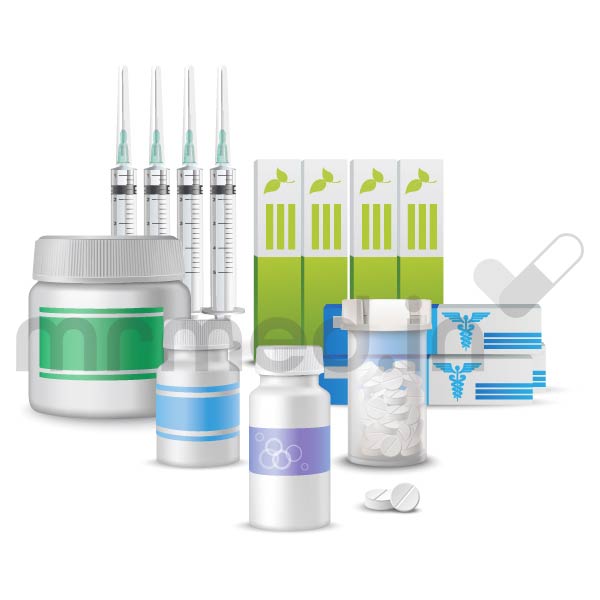All Substitutes
Loading...
Disclaimer
Did you find this information helpful?



Nelabin 250mg Injection
Prescription Required
Salt Composition : Nelarabine
Manufacturer : MSN LABORATORIES (INDIA)
Origin of Medicine : India
1 Vial(s)
Introduction to Nelabin 250mg Injection
Nelabin 250mg Injection contains nelarabine as its active constituent, classified under antineoplastic agents. It is primarily used in the treatment of certain types of blood cancers, specifically T-cell acute lymphoblastic leukaemia (T-ALL) and T-cell lymphoblastic lymphoma (T-LBL). This medication works by disrupting cancer cell growth, ultimately leading to their destruction. As a chemotherapy drug, it is prescribed under strict medical supervision due to its potent effects and potential side effects.
Before starting treatment, patients must be evaluated for pre-existing health conditions, including liver and kidney function, neurological status, and blood cell counts. It is not recommended for individuals with severe neurological disorders or those who have previously exhibited hypersensitivity to its components. Special caution is required for pregnant and breastfeeding women, as the drug may cause serious harm to the fetus or infant. Patients should adhere to safety measures to minimise adverse effects and ensure optimal therapeutic outcomes.
Uses of Nelabin 250mg Injection
Nelabin 250mg Injection is FDA-approved for the treatment of:
- T-cell acute lymphoblastic leukemia (T-ALL)
- T-cell lymphoblastic lymphoma (T-LBL)
Therapeutic Effects of Nelabin 250mg Injection
This medication belongs to the class of antimetabolites and acts by interfering with DNA synthesis within rapidly dividing cancer cells. Once inside the body, it is converted into its active form, which integrates into the DNA of malignant cells, disrupting their ability to multiply. This ultimately leads to cell death and reduces the progression of the disease. Due to its targeted mechanism, it is highly effective in treating specific blood malignancies while requiring careful monitoring to manage its associated risks.
Interaction of Nelabin 250mg Injection with other drugs
Serious drug interactions can impact the efficacy of chemotherapy and increase the risk of adverse effects. Patients should inform their healthcare provider about all ongoing medications before starting treatment.
- Immunosuppressants (e.g., cyclosporine, tacrolimus): May heighten the risk of severe infections.
- Other chemotherapeutic agents (e.g., methotrexate): Increased risk of toxicity, including severe bone marrow suppression.
- CNS depressants (e.g., benzodiazepines, opioids): Potential exacerbation of neurological side effects.
- Live vaccines: Heightened risk of infections due to immunosuppression.
- Nephrotoxic drugs (e.g., aminoglycosides, NSAIDs): May impair kidney function and alter drug elimination.
More Information about Nelabin 250mg Injection
- Store at a controlled temperature (20-25°C) away from direct sunlight and moisture.
- If a dose is missed, consult a healthcare professional before making up for it.
- In case of overdose, seek immediate medical attention due to the risk of severe toxicity.
How to consume Nelabin 250mg Injection
Nelabin 250mg Injection is available as an intravenous (IV) infusion and is administered by a healthcare professional in a clinical setting. The dosage is carefully determined based on the patient’s body surface area, overall health status, and response to treatment. It is typically given in cycles, allowing for adequate intervals between doses to enable the body to recover and minimise potential side effects.
Safety Advices for Nelabin 250mg Injection
Pregnancy
Nelabin 250mg Injection may cause fetal harm; effective contraception is required during treatment.
Breast Feeding
Nelabin 250mg Injection is not recommended due to the risk of serious infant complications.

Lungs
Patients with pre-existing lung conditions should be monitored for respiratory complications before taking Nelabin 250mg Injection.

Liver
Dose adjustments may be needed for individuals with hepatic impairment. Consult a doctor for more advice before taking Nelabin 250mg Injection.
Alcohol
Alcohol consumption can worsen side effects and should be avoided if you are taking Nelabin 250mg Injection.
Driving
Nelabin 250mg Injection may cause drowsiness, dizziness, or neurological issues, affecting the ability to operate machinery.
Side Effects of Nelabin 250mg Injection
Common Side Effects:
- Fatigue
- Nausea and vomiting
- Decreased appetite
- Fever
- Muscle weakness
Serious Side Effects:
- Severe bone marrow suppression
- Peripheral neuropathy (tingling, numbness, or weakness in limbs)
- Severe infections due to low white blood cell count
- Cognitive and coordination impairments
- Seizures (in rare cases)
Word of Advice
Patients undergoing treatment should maintain regular follow-ups to monitor blood counts and overall health. Neurological symptoms such as confusion or muscle weakness should be reported immediately. Adequate hydration is essential to minimise kidney-related side effects. As it suppresses immune function, avoiding crowded places and exposure to infections is advised. Supportive therapies and lifestyle modifications can enhance tolerance and improve treatment outcomes.
FAQs
Q 1. What is Nelabin 250mg Injection used for?
Nelabin 250mg Injection is primarily used to treat T-cell acute lymphoblastic leukemia (T-ALL) and T-cell lymphoblastic lymphoma (T-LBL). These are aggressive types of blood cancer affecting the lymphoid cells, particularly in patients who have not responded to previous treatments. It works by interfering with cancer cell growth and preventing them from multiplying. This medication is administered under strict medical supervision due to its potency and potential side effects. Regular monitoring is essential to ensure the effectiveness of the treatment and manage any complications that may arise.
Q 2. How is Nelabin 250mg Injection given?
Nelabin 250mg Injection is given as an intravenous (IV) infusion, meaning it is delivered directly into the bloodstream through a vein. It must be administered in a hospital or clinical setting by trained healthcare professionals to ensure proper dosage and monitoring. The dosage and treatment schedule depend on several factors, including the patient’s body surface area, overall health, and response to therapy. The infusion is typically given in cycles, with rest periods in between to allow the body to recover. Patients should follow their doctor’s instructions carefully and report any unusual symptoms during or after the infusion.
Q 3. What precautions should I take while on this medication?
While taking Nelabin 250mg Injection, it is important to avoid alcohol, as it can worsen side effects such as dizziness and liver toxicity. Staying well-hydrated helps reduce the risk of kidney-related complications and improves overall well-being during treatment. Patients should also be vigilant about any neurological symptoms, such as numbness, tingling, or muscle weakness, and report them to their doctor immediately. Regular blood tests are required to monitor white blood cell counts, as the drug can suppress the immune system and increase infection risk. Additionally, avoiding contact with sick individuals and maintaining good hygiene can help prevent infections.
Q 4. Does Nelabin 250mg Injection cause long-term side effects?
Some patients may experience long-term side effects, particularly neurological symptoms such as numbness, coordination issues, or memory problems. While these effects may improve over time, some individuals may experience persistent nerve damage. Additionally, since Nelabin 250mg Injection suppresses the immune system, prolonged treatment can increase susceptibility to infections. Routine health checkups and supportive care can help manage and mitigate long-term complications. Patients should discuss any lasting symptoms with their doctor to explore possible interventions and supportive therapies.
Fact Box of Nelabin 250mg Injection
Molecule name: Nelarabine
| Pharmacological class: Antimetabolite |
| Therapeutic class: Antineoplastic agent | Indications: 1. T-cell acute lymphoblastic leukemia (T-ALL) 2. T-cell lymphoblastic lymphoma (T-LBL) |
References
1. LiverTox: Clinical and Research Information on Drug-Induced Liver Injury [Internet]. Bethesda (MD): National Institute of Diabetes and Digestive and Kidney Diseases; 2012-. Nelarabine. [Updated 2020 May 1]. Available from: https://www.ncbi.nlm.nih.gov/books/NBK548515/
2. Boddu PC, Senapati J, Ravandi-Kashani F, Jabbour EJ, Jain N, Ayres M, Chen Y, Keating MJ, Kantarjian HM, Gandhi V, Kadia TM. A phase 1 study to evaluate the safety, pharmacology, and feasibility of continuous infusion nelarabine in patients with relapsed and/or refractory lymphoid malignancies.
https://pubmed.ncbi.nlm.nih.gov/36448227/
3. Kathpalia M, Mishra P, Bajpai R, Bhurani D, Agarwal N. Efficacy and safety of nelarabine in patients with relapsed or refractory T-cell acute lymphoblastic leukemia: a systematic review and meta-analysis. https://pubmed.ncbi.nlm.nih.gov/35727338/
4. https://www.accessdata.fda.gov/drugsatfda_docs/label/2012/021877s005lbl.pdf
Disclaimer
MrMed’s primary intention is to ensure that its consumers get information that is reviewed by experts, accurate and trustworthy. The information and contents of this website are for informational purposes only. They are not intended to be a substitute for professional medical advice, diagnosis, or treatment. Please seek the advice of your doctor and discuss all your queries related to any disease or medicine. Do not disregard professional medical advice or delay in seeking it because of something you have read on MrMed. Our mission is to support, not replace, the doctor-patient relationship.